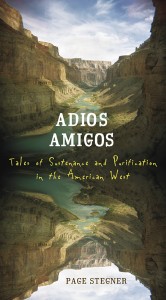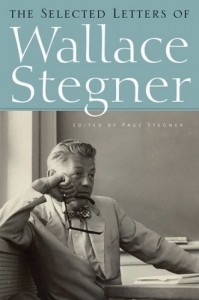Page Stegner
Stuart Page Stegner is the son of novelist Wallace Stegner. He was a novelist, essayist, and historian who wrote extensively about the American West.
Subscribe to our newsletter for news & events from Counterpoint Press.
Books
Adios Amigos
Tales of Sustenance and Purification in the American West
In this free–spirited collection of essays, Page Stegner weaves natural history, conservation polemic, ecology, and wilderness adventures on a number of the West's major white–water rivers. Stegner moves effortlessly from his own experiences on the Colorado, Yampa, Green, San Juan, Dolores, and Missouri rivers to first explorations by historical figures such as Lewis and Clark and John Wesley Powell, to modern controversies that threaten the continued unspoiled isolation of these special places.From its opening essay — recalling a hilarious, albeit hazardous, journey down the Owyhee River in southeastern Oregon — to the final episode on Lake Powell, Stegner's narrative is rich in vivid detail, laced with sardonic humor, and always grounded in a passion for the West — both its past and the promise of its future.
The Selected Letters of Wallace Stegner
Wallace Stegner, recipient of the Pulitzer Prize in 1972, was a great writer. As an author, historian, teacher, and environmentalist, he influenced countless prominent individuals during his long life. Showcasing some of those relationships, these letters (written between 1933 and 1993) cover a broad range of topics, including literature, history, conservation, and Stanford. Here are letters to colleagues, like Ansel Adams, friends and family, as well as many students who went on to become well–respected authors, among them Wendell Berry, John Daniel, Barry Lopez, William Kittredge, and Robert Stone.In 1946 he founded the prestigious Stegner Fellowship Program. In 1961, his memos to then Secretary of the Interior Steward Udall set the tone and agenda for what would become the modern environmental movement. Here, in their entirety, are the letters that track it all. For a man who had no interest in writing an autobiography, they offer an inside look at his "unedited thoughts and opinions, and to a factual narrative untransformed by the literary imagination, to life lived before being lived," writes his son Page Stegner in his introduction. Here is history as told through correspondence with people who helped shape literature, politics, and environmentalism in the twentieth century.

Catapult | Counterpoint | Soft Skull
20 Jay Street #704
Brooklyn, NY 11201
646.926.0805 | contact@catapult.co






